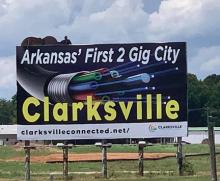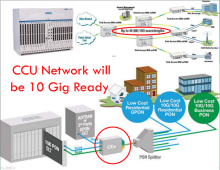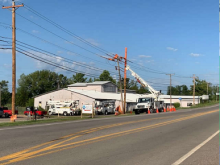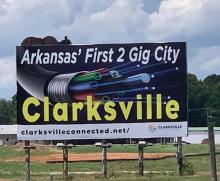
Chickens, peaches, and college students. Those may be the first things that come to mind if you have ever visited Clarksville, Arkansas – a small town of about 9,200 residents situated at the foot of the Ozarks.
Clarksville’s largest employer is a Tyson poultry facility. Every summer, Clarksville hosts the oldest food festival in the state, the annual Johnson County Peach Festival (which was cancelled in 2020 because of the COVID-19 pandemic). And, just two blocks north of downtown Clarksville is The University of the Ozarks, which gives Clarksville a bit of that college town flavor.
But, if you ask Clarksville Connected Utilities (CCU) Business Development Director Barry Sellers, he will tell you: “the biggest thing we have [in Clarksville] is this fiber network. That’s why we put up a billboard right off I-40 that says: ‘Clarksville is Arkansas’ first two gig city.’ I get calls weekly asking if it’s true.”
Yes, it’s true. Last summer CCU began the last step of a Fiber-to-the-Home (FTTH) build-out with the project already nearing completion.
“We are starting to light people up, about 200 so far. We should be able to have 1,000 customers lit up and being served before end of 2021,” CCU GM John Lester told us last week, adding that they have a 30% take-rate so far and are hopeful that as many 50% of the city’s 4,300 potential residential and business customers will sign up for service within the next 3 to 4 years.
Birth of a Network
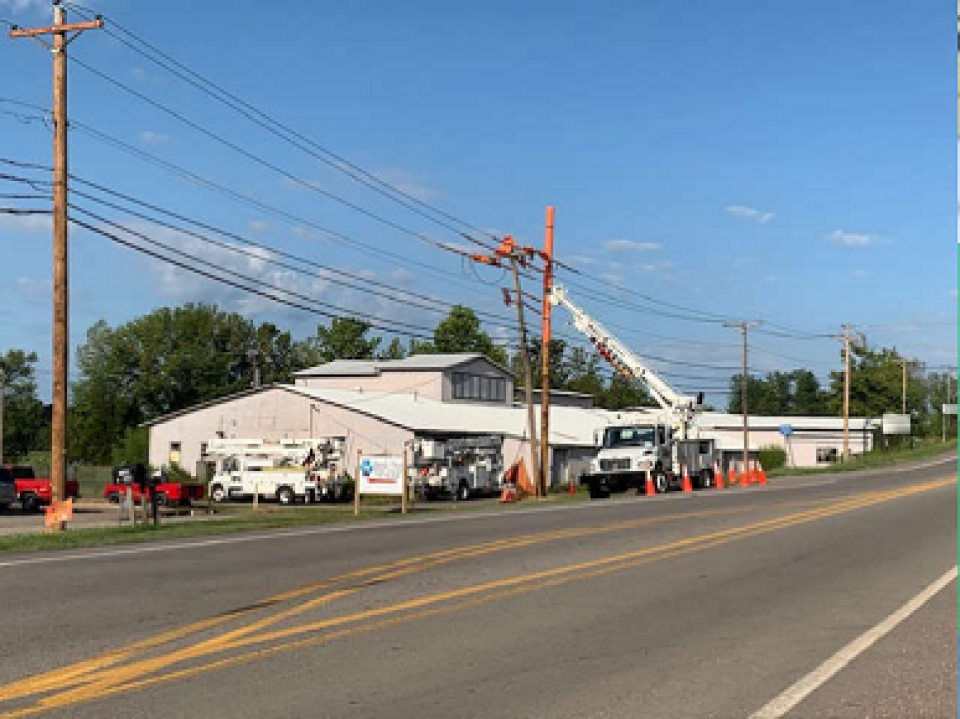
It was in 2013 that CCU operators were looking for a way to provide better connectivity for its utility operations and its Supervisory Control and Data Acquisition (SCADA) systems, which monitors and manages its utility infrastructure. After studying what kind of network to put in place, CCU found that a fiber network would be the best fit.
“What made the most sense was to build a fiber network and in 2015 we built our core network,” Lester said. “We lit up our SCADA network and now we can literally run our entire water system from a smartphone.”
But what was really smart is that CCU administrators were thinking beyond simply enhancing the town’s utility operations and envisioned how the network could serve residents in other ways by building a FTTP network to make Clarksville a more attractive place to live and work.
“Beginning with the end in mind, we decided to overbuild beyond our utility-only needs and built a 17-mile, 288-fiber network ring. We designated buffer tubes with 12 fibers each,” Lester explained, adding that each tube is dedicated for distinct city functions with one tube for health care facilities, one for municipal buildings, one for public safety, one for educational institutions, and so forth.
Lighting Up Customers with Lightning Speed
In 2018, the Clarksville School District became CCU’s first paying customer, connecting all 11 schools in the district to the core. Since then, CCU has set up a separate network for county facilities, and one for the Johnson Regional Medical Center. CCU is in the process of connecting area clinics as well.
Other anchor institutions now being served by CCU include the City of Clarksville and the University of the Ozarks, a campus with 20 different buildings. CCU is also in the midst of connecting the city’s housing authority to the network, which is a particular point of pride for Lester.
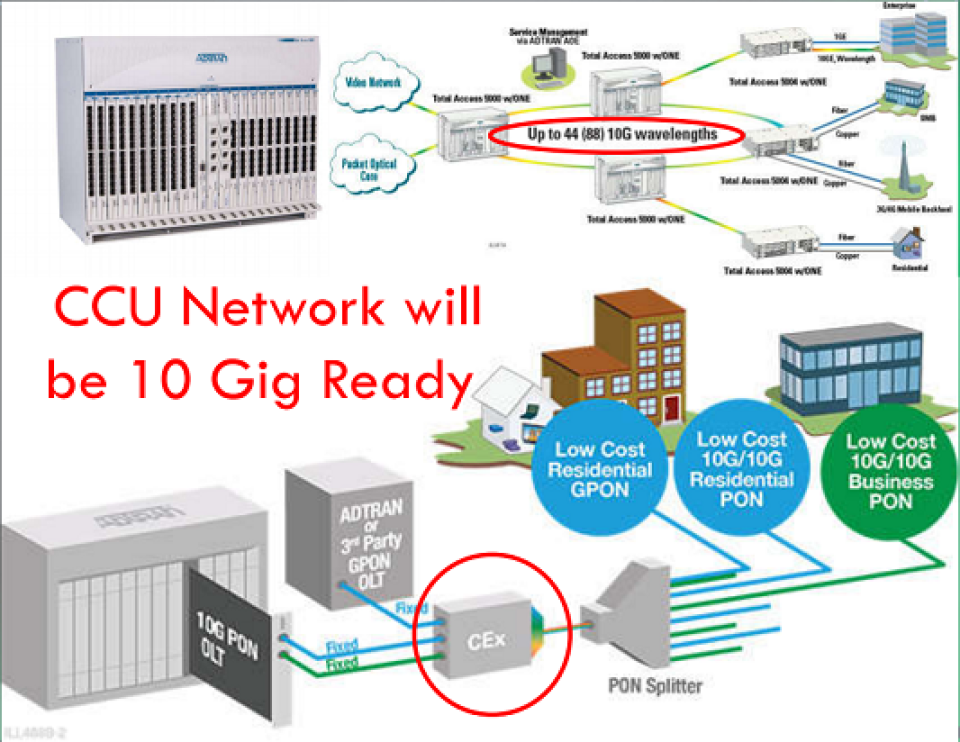
As more fiber customers come online, Lester noted, network designers have already built-in extra capacity. “1 Gig PON (passive optical network) is the stalwart. But, that next generation of 10 gigs is coming and we have already embedded that in the network so we have the ability to go up to 10 gigs without having to forklift,” Lester said.
“The most challenging thing right now for us is managing expectations. You can’t connect everyone instantly. What we tell people is this is like building a whole new transportation system. It doesn’t happen overnight,” he added.
To pay for the build-out CCU issued $9 million in revenue bonds, $7 million of which will fund network construction with the other $2 million to fund upgrades for CCU’s water treatment plant and smart grid.
Luring Customers and Employers
One thing CCU hopes will attract more customers, of course, is the price. Residential customers can get a 100 Megabits per second (Mbps) up and down connection for $45 per month; 250 Mbps up and down for $65 per month; 500 Mpbs up and down for $80 per month; and a symmetrical 1 Gigabits per second (Gbps) connection for $90 a month.
“We have a different motivation than privately-owned and public-traded companies. For us, it’s about community development, not maximizing profits,” Lester said.
In addition to CCU’s comparatively low prices for high-speed service, which is about $20 a month less than what the incumbent providers offer, CCU Business Development Director Barry Sellers said it’s the customer service that really sets CCU apart.
“I’ve been on hold for two hours with SuddenLink and CenturyLink. That doesn’t happen with us,” Sellers said.
But whether it’s the price, customer service, network reliability, or all three, CCU is already enticing employers. Lester said one of CCU’s industrial customers was recently in the process of consolidating its operations and trying to decide which of its two Arkansas locations they would keep open. CCU’s fiber network proved to be the deciding factor.
“Because we have this network, we could say if you move here, we can do an energy audit and give you free Internet for a year in return for adding 25 employees and re-locating to Clarksville. And they did,” Lester said.
